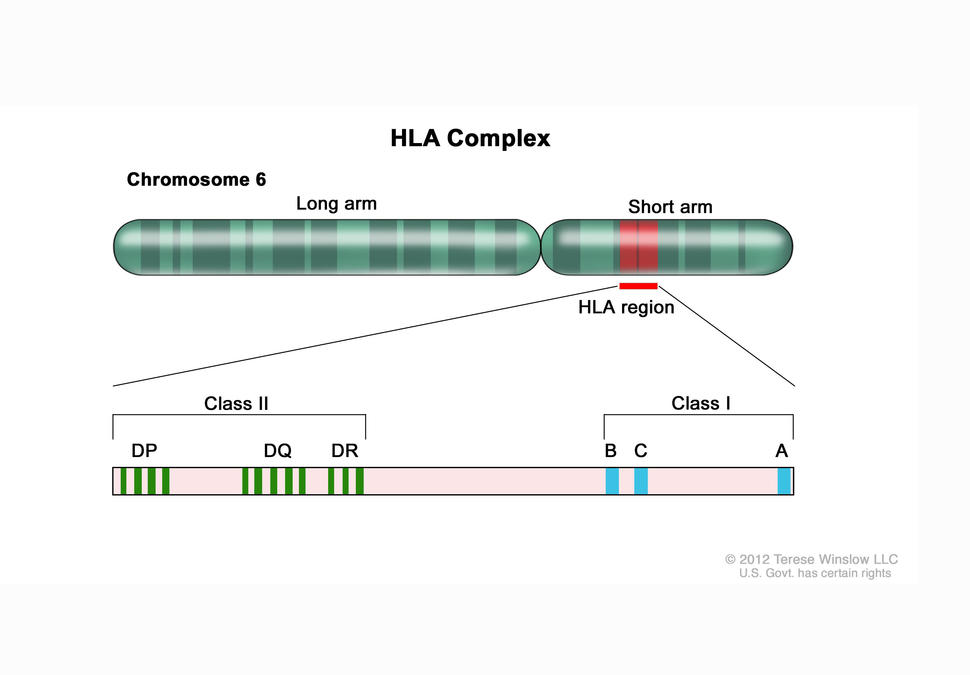HLA-DPB1 Variants May Increase Risk of Severe Aplastic Anemia, Study Finds
Genetic variants in HLA-DPB1 are associated with increased risk of severe aplastic anemia (SAA) and may offer insight into SAA etiology, according to findings published in The American Journal of Human Genetics on February 6, 2020.
SAA is a rare disorder characterized by the inability to make blood cells. SAA is either acquired or results from an inherited bone marrow failure syndrome, and it contributes to significantly increased risk of myelodysplastic syndrome and acute myeloid leukemia. The etiology of acquired SAA is largely unknown. In collaboration with the Center for International Blood and Marrow Transplant Research, Shahinaz Gadalla, M.D., Ph.D., Earl Stadtman investigator, and Sharon Savage, M.D., senior investigator and Chief of the Clinical Genetics Branch, and collaborators conducted a genome-wide association study (GWAS) of 534 SAA cases and 2,455 controls to identify common single nucleotide polymorphisms (SNPs) associated with SAA to understand their role(s) in SAA etiology.
Numerous SNPs in the major histocompatibility complex locus on chromosome 6p21 were statistically more common in individuals with SAA than in controls. The top SNP is located in the HLA-DPB1 gene and encodes an amino acid change from methionine to valine (p.Met76Val) in the antigen receptor protein, HLA-DP. Investigators also found that p.Val76 is associated with increased cell-surface expression of HLA-DP. The p.Met76Val substitution occurs in the HLA-DP’s binding pocket and may influence SAA risk by altering the receptor’s binding properties.
Further studies are needed to investigate further the full spectrum of SAA etiology and to validate these findings in diverse populations. Research in this area may improve clinical care of individuals with SAA by using genetic profiling to determine the most appropriate course of treatment.
Reference:
Savage SA et al. Genome-wide Association Study Identifies HLA-DPB1 as a Significant Risk Factor for Severe Aplastic Anemia. Am J Hum Genet. 2020 Feb 6. DOI: 10.1016/j.ajhg.2020.01.004. [Epub ahead of print]
